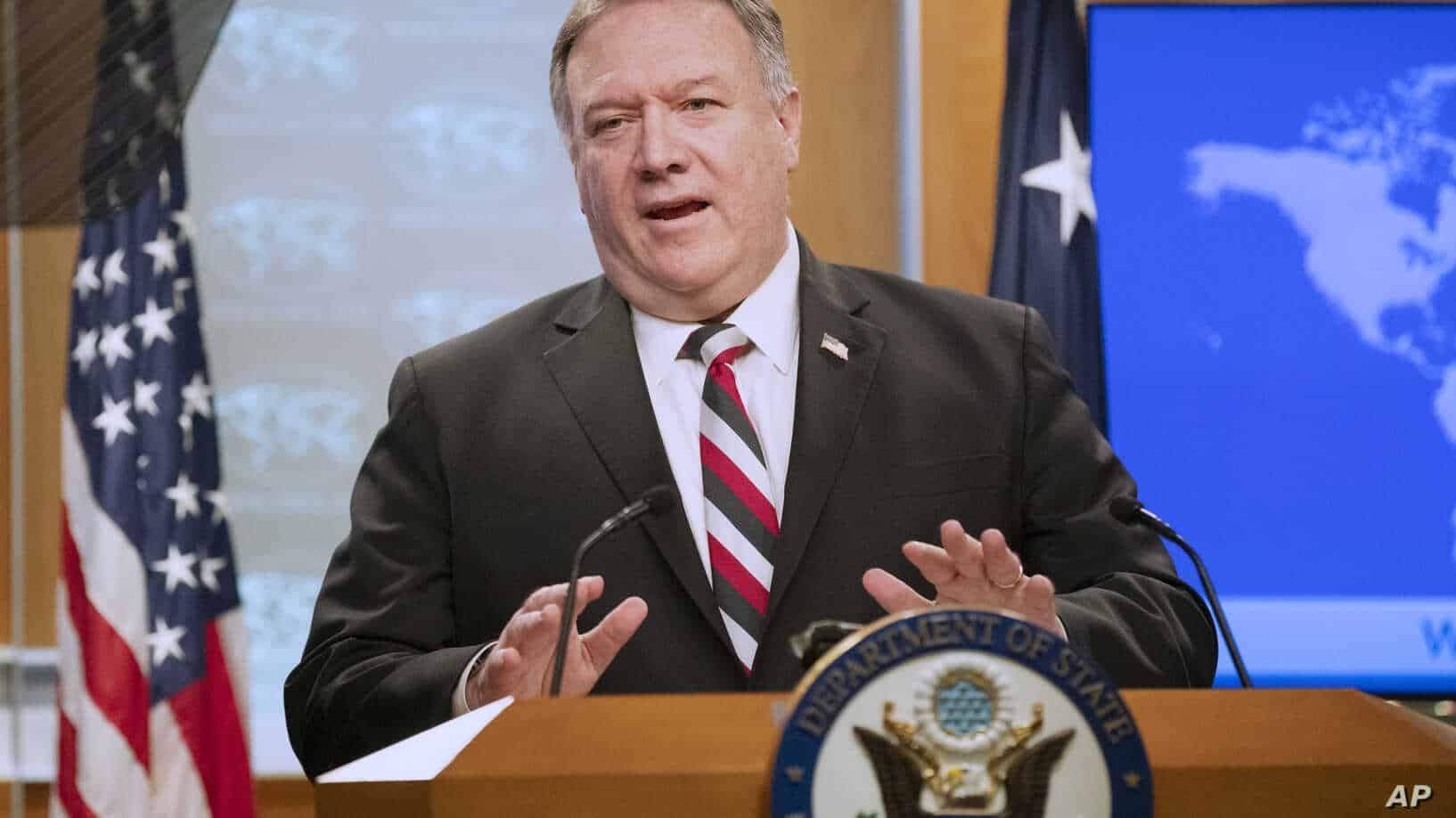US to Designate New Islamic State Leader as Global Terrorist

The United States is preparing to label the Islamic State terror group’s new leader, introduced to the world as Abu Ibrahim al-Hashimi al-Qurashi, as a “specially designated global terrorist.”
U.S. Secretary of State Mike Pompeo made the announcement Tuesday during a briefing with reporters, referring to al-Qurashi as Amir Muhammad Sa’id Abdal-Rahman al-Mawla, one of the IS leaders many aliases.
The move comes more than a month after U.S. defense and intelligence officials first unmasked al-Qurashi’s true identity, which IS had tried to keep hidden by assigning him a nom-de-guerre.
A religious scholar, al-Qurashi was imprisoned in the now infamous U.S.-run Camp Bucca in Iraq, starting in 2004, where he met former IS leader Abu Bakr al-Baghdadi.
Intelligence officials say he was active in IS’ predecessor organization, al-Qaida in Iraq, and eventually became one of Baghdadi’s most trusted deputies.
Al-Quashi is also seen as the architect behind IS’ slaughter of the Yazidi religious minority and oversaw some of the terror group’s global operations.
Intelligence officials credit him with keeping IS, also known as ISIS or Daesh, from falling apart following Baghdadi’s death in a U.S. operation in October 2019. Instead, they say he has helped make sure the terror group has continued its resurgence in both Iraq and Syria, while at the same time maintaining the allure of the global IS brand.
“ISIS supporters worldwide have rallied around the new caliph,” a senior counterterrorism official told VOA in January.
The move to designate al-Qurashi as a global terrorist is, in some ways, a formality, but will help the U.S. to cut off al-Qurashi from some financing and other resources.
“We’ve destroyed the caliphate,” Pompeo said Tuesday. “And we remain committed to ISIS’s enduring defeat no matter who they designate as their leader.”
The U.S. is currently offering a $5 million reward for information that leads to al-Qurashi’s capture.
It is unclear whether the State Department will increase that bounty to the $25 million it offered for any information that could help bring former IS leader Baghdadi’s to justice.
Link: https://www.voanews.com/middle-east/us-designate-new-islamic-state-leader-global-terrorist











